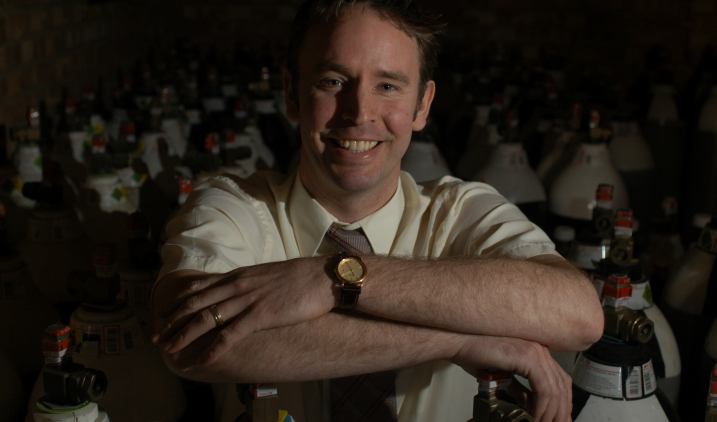Stores and distribution staff
Stores and distribution staff make sure that a range of essential supplies are delivered to the right wards, clinics and health centres.
This page has information on the role of stores and distribution staff in the NHS, including entry requirements and skills needed.
Working life
The NHS relies on having the equipment and materials it needs in the right place, on time. Items can include anything from drugs and operating theatre supplies, to wheelchairs, parts for ambulance vehicles or the latest piece of radiotherapy [1] equipment.

Your work in stores and distribution will include
- processing orders
- receiving deliveries
- making sure stocks are stored correctly and safely
- monitoring use of items and equipment
- delivering goods to wards and departments
- making sure old stocks are used before new stock (stock rotation)
- doing stock checks
Depending on what the stocks are and where they need moving, you may use
- fork lift trucks
- vans
- trolleys
Stores and distribution staff work at different levels. Stores and distribution assistants work in a team, supervised by a team leader who organises the day-to-day workload.
A manager is responsible for stores and distribution in a hospital or area. They also
- recruit, train and manage staff
- control budgets
- make sure that services meet the needs of hospital departments
- maintain quality standards
Where will I work?
You might be based within a trust headquarters building, a stores department within a hospital or other health provider, or a distribution warehouse, well away from where healthcare is being provided.
Who will I work with?
You may have contact with healthcare staff, such as operating department practitioners [2], phamacy staff [3], administration staff [4] and porters. [5] You will also work with external suppliers of equipment and supplies. You are likely to have little or no contact with patients.
Some stores and distribution staff work for companies which supply goods and services to the NHS.
Entry requirements
There are no set entry requirements for stores and distribution assistants. Employers expect a good level of literacy, numeracy and IT. They may ask for GCSEs (or equivalent) in English and maths along with an IT qualification such as ECDL.
Employers may ask for experience. Even where it is not specified, it can be useful if you have experience in stores and/or distribution. This could be, for example, from retail or warehousing work. There may be opportunities to gain relevant experience through an apprenticeship. [6]
You can enter the NHS as a stores and distribution manager with relevant qualifications and experience. Employers usually ask for a degree level qualification. This could be, for example
- the Diploma in Procurement and Supply from the Chartered Institute of Procurement and Supply [7] (CIPS). You need two A levels or the CIPS Certificate. You can study part-time or by distance learning
- the Supply Chain Professional Practitioner Award from the Chartered Institute of Logistics and Transport [8] (CILTUK). There are no specific entry requirements. You can study part-time or by distance learning
- a degree in business purchasing and supply chain management or logistics and supply chain management
Degree courses are three or four years full time. To get onto a relevant degree course you usually need
- two or three A levels along with up to five GCSEs (grades A-C [9]), including English and maths
or alternative qualifications, including
- BTEC, HND or HNC
- relevant NVQ
- access course
- equivalent Scottish or Irish qualifications
However, each institution sets its own entry requirements, so it’s important to check carefully.
Skills needed
Stores and distribution staff need to be
- physically fit for lifting, carrying and pushing trolleys
- part of a team but responsible for their own work
- methodical and accurate
- good communication skills
- organisational skills
- customer service skills
- driving skills
Training and development
When you join the NHS in stores and distribution, you will get the training you need. This includes, health and safety and an introduction to the department and its systems and procedures. Your employer will expect you keep your skills up to date by attending short courses.
Whatever level you are working at, you will be encouraged to take further qualifications. This could include NVQs or qualifications from the Chartered Institute of Procurement and Supply [7] (CIPS) or the Chartered Institute of Logistics and Transport [8] (CILTUK).
Stores and distribution managers can become members of CIPS or CILTUK and apply for chartered status. Chartered procurement and supply professionals and chartered members of CILTUK have to keep their skills and knowledge up to date with annual CPD (continuing professional development). CIPS and CILTUK both run courses, conferences and seminars where staff can update their skills and network with others.
